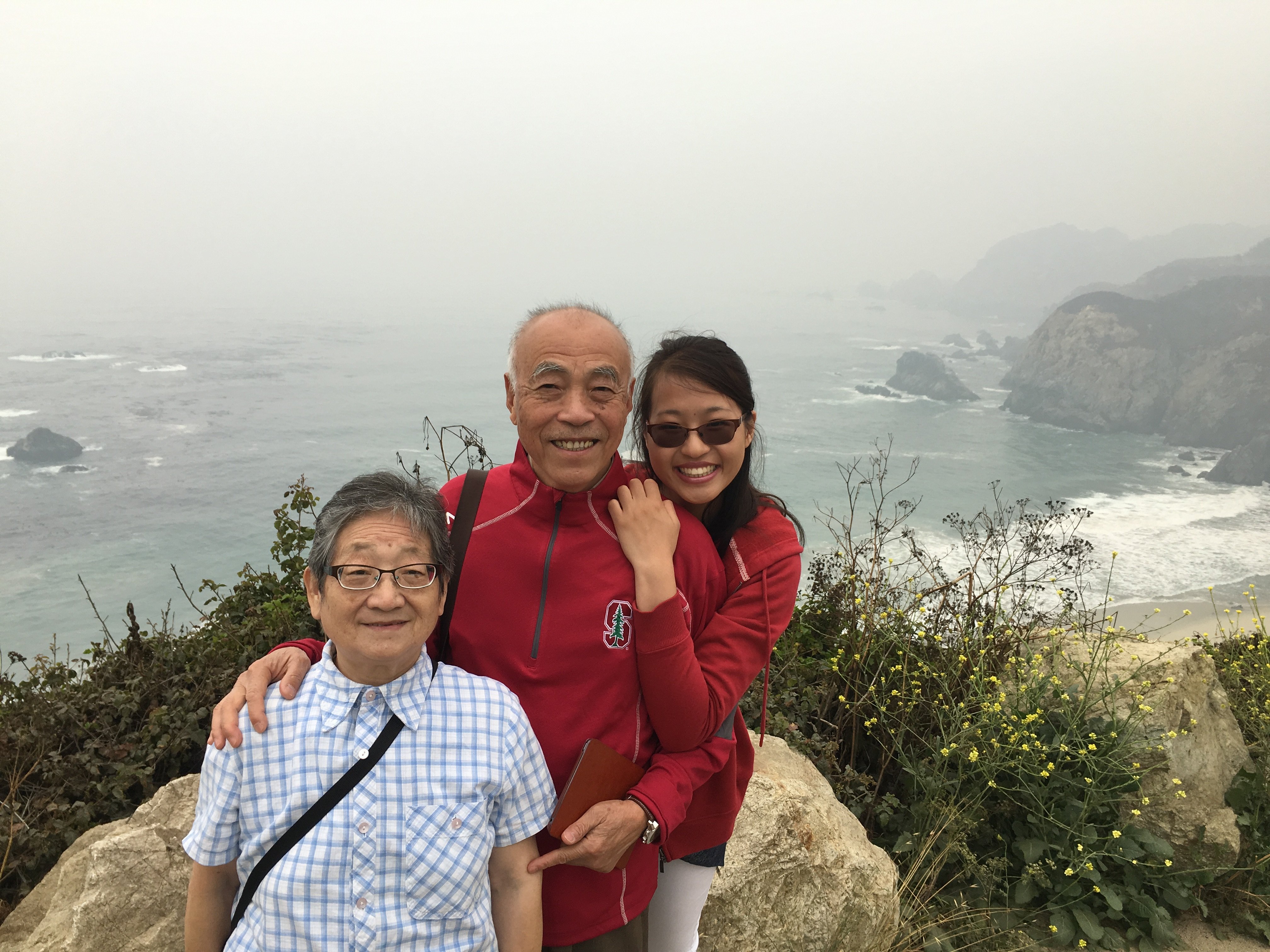My grandfather’s ringtone is the sound of a cuckoo bird, and it plays every time he receives a text message. His many friends generally text him at around 3PM in China (3AM in the United States’ Eastern Time Zone). All summer, while I was lying awake at night, I’d hear that sound. Cuckoo. Cuckoo.
My grandfather is, at age 80, a sort of hipster. He works out every morning. He has a surprisingly vibrant social media profile, on which he shares articles and even gifs. He’s a naturally brilliant cook, and he experiments with strange trendy foods in the way that any hipster would.
He is, in short, a perfect case study: a cross between modernism and traditionalism — and, perhaps, he provides a window into the future generations of elderly and youth who will both have grown up with technology.
My grandparents lived in our home this past summer, and they brought with them two smartphones. Each morning (or rather, afternoon, since I’m quite a night owl), I woke up to the strains of the music videos that my grandmother streamed while wrapping dumplings. I’d eat brunch while checking my inbox, which my grandfather had flooded with forwarded messages. And then I’d have to explain that, no, grandpa, contrary to this article you sent me, microwaves are not dangerous.
I couldn’t help but think that their days very closely resembled mine. Clicking, scrolling, sending links to friends. And I couldn’t help but feel a little sad as I sat at my own computer, watching my grandparents texting on their respective phones. I messaged my friends; they messaged theirs.
We developed the mutual idea that everyone in the house was busy. My grandfather had taken it upon himself to transcribe his late father’s autobiography (written in nearly-illegible Chinese calligraphy) into Simplified Chinese, and he worked industriously on his iPad for most of the summer. I felt guilty about bothering him, and apparently the feeling was mutual. Each time my grandfather approached me at my desk, he’d preface his words with, “Oh no, I must be keeping you from something important.” And though I was careful to emphasize that, in fact, I wasn’t doing anything of importance at all, I wondered how many conversations my computer had deterred. And I wondered how many conversations my grandfather’s iPad had prevented.
I wanted to ask my grandparents if they had noticed the same phenomenon, but I failed to find the words. In every conversation we shared about technology, my grandfather gave glowing reviews — “Back when your father was going to college, I had to either write letters or visit him personally; now that there’s text messaging, the college transition will be so easy.” I wanted to ask him how it felt to enter a digital world from an analog one; I wanted to hear his stories, his opinions; I wanted to know his thoughts beyond the links that he forwarded (which I rarely read beyond a few sentences).
Instead, our conversations always felt a bit rushed; a few minutes in, my grandfather would say, “You should get back to what you were working on,” and we turned again to our phones and our computers.
I felt guilty that they had traveled halfway across the world to visit me, and yet our relationship felt more distant than ever. I felt responsible when, after finally sharing an hour-long conversation, my grandfather told me that it was nice to have such a “rare opportunity.”
But we had lived in the same house for an entire summer. Why was a simple conversation such a “rare opportunity?”
Fourteen years ago, my grandparents had raised me in China. Years later, I believed that I could say anything to them. When did that feeling stop? When did I lose the words with which to communicate — when did we transition from mutual confidantes to people who conversed only when the wifi broke down?
Certainly the issue was mired not only by the complexity of technology, but by culture and our own human fallibility — the expectation that a student (even while on an onerously long summer break) must be constantly occupied; the tendency for anyone, while living in close quarters, to create tiny abrasions. Then there was the blunt fact of our generational gap, which was paradoxically heightened by my grandparents’ technology. Within their online niche, my grandparents sometimes enhanced certain traditional views. They often gave me strangely outdated pieces of advice, to which I typically remained silent in lieu of outright offending them.
Though technology itself is not at fault, the behavior of its users are paradoxical: They are closer, yet more distant; connected, yet disconnected; enlightened by modern ideas, yet enclosed within niche spaces of outdated thoughts.
And on a very real, personal level, there was the sense of guilt and betrayal, which washed over me on my second to last day at home. I realized, at that moment, that I had spent an entire summer failing as a human being. I had the opportunity of a lifetime to learn about my family’s meaningful stories, and yet I spent most of those days silent.
On the last day of my summer, I told my grandmother that I genuinely didn’t have anything left to do. I sat down at our breakfast table. We talked for four hours.
Those four hours cannot make up for the opportunities that I had missed in the previous four months. But they had reminded me to invest more in genuine conversations; to take moments to say, “I don’t have anything left to do; let’s talk.”
And though I am often still absorbed in my phone, hastily checking my calendar and sending group messages, the thought of those four hours — and the four months that could have been — remind me to look up.
Contact Xinlan Emily Hu at xehu ‘at’ stanford.edu.
